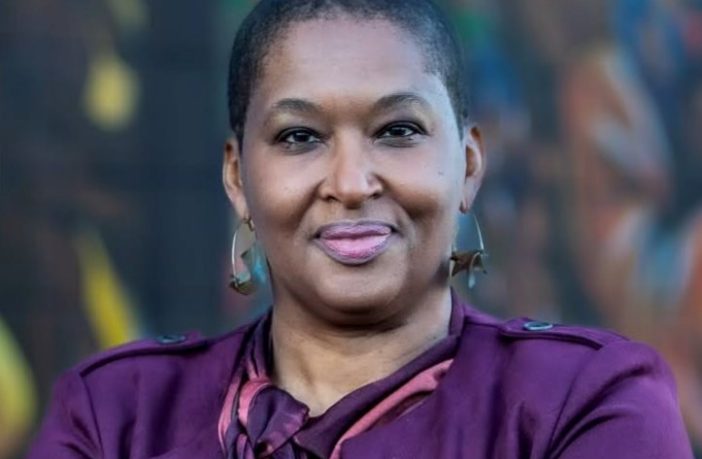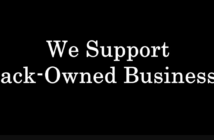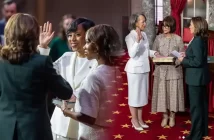By Megan Sayles
AFRO Business Writer
msayles@afro.com
The Baltimore Office of Promotion and the Arts (BOPA) tapped Rachel D. Graham to become its next permanent CEO in February. The move came after a challenging year for the quasi-governmental agency.
Rachel D. Graham is now leader of the Baltimore Office of Promotion and the Arts (BOPA). Graham assumed the position after the cultural organization experienced a tumultuous year with scheduling difficulties and canceled events. (Photo credit: Elijah Davis/Elijah Camera Art @ElijahCameraArt)
Prior to BOPA, Graham served as the external relations director for the Reginald F. Lewis Museum of Maryland African American History and Culture. In her new role, she hopes to reorient the organization as a trusted advocate for the Baltimore arts community.
“If you build a robust arts community, that in turn can play a huge role in the city taking its rightful place as an arts and culture mecca,” said Graham. “People have a tendency to forget how much this city has given in the way of arts and culture. Working with our partners in the city, I look forward to us being able to play a role in pushing the city forward and telling the story of Baltimore.”
BOPA is the official event producer for the city of Baltimore, organizing large-scale events like Artscape and the Baltimore Book Festival. Its contract with the city is set to expire on June 30, and there has yet to be word on whether it will be renewed.
The AFRO recently connected with Graham to discuss the trajectory of the agency going forward. The responses below have been edited for length and clarity.
Q: As you grow into your new position, what are your top goals for BOPA?
A: The short-term goal is meeting the expectations of the city around our contracts and obligations. Over the past year, BOPA has done a lot of work to regain the trust of the city and to demonstrate that we are a stable organization that takes its work seriously. When I first came in, one of the conversations I had with the team was understanding that our first responsibility is to the taxpaying residents of Baltimore because they are who pay our bills. We are charged with promoting arts and culture and supporting artists in the city of Baltimore. Instilling that understanding at a deep level will help us shape what the long-term looks like.
We’re also really focused on making the bones of the organization sturdy around bylaws, governance and fiscal responsibility. Our interim board will be doing a lot of work over the next year to determine the path forward for the organization. As they set marching orders, I will be working with my team to execute them.
The budget for the organization has decreased over the years so we’re identifying ways to expand the pie not just from governmental sources but by proving ourselves worthy of private and nonprofit contributions. That way we can do more work to meet the needs of the community.
Q: Baltimore maintains a vibrant community of Black creators and artists, what is your role in ensuring they can access opportunities and support from BOPA?
A: Much of my career has been steeped in conversations about equity even before it became a part of people’s lexicon. I’ve gone through a number of training sessions centered on undoing racism. I understand racism and bigotry are not the same thing.
BOPA is an organization that considers diversity, equity and inclusion as a key driver. My job is to keep the organization true to that. That means examining how we intentionally encourage the community to be a part of our application processes for prizes that go out. It means making sure we’re communicating information about funding opportunities to the broadest audience as humanly possible.
We also do public artwork and mural projects, which have guidelines as it relates to the spending of federal dollars, but that’s the bare minimum. We want to take it a step further and incorporate community voice throughout the entirety of the process such that we’re walking alongside residents as we support arts and culture in the city.
Q:What impact do you want to have on Baltimore’s arts community and the city as a whole?
A: Ultimately, it’s not about the impact I want to have on them but the impact I want them to understand they can have on our organization. We want to hear what their interests are and implement or provide support to them to bring about sustained change for the city. We want to help make this city a place that will attract people from all over the world to enjoy.
It’s also important for me to broaden the understanding of the opportunities that exist in Baltimore’s arts and culture landscape. I want us to be a connector, promoter, celebrator and solutions finder.
When people ask what my vision is for the organization, I struggle to answer because, for me, it’s not my place to say. Instead, I need to sit back, listen to the community and shape their vision into something actionable.



